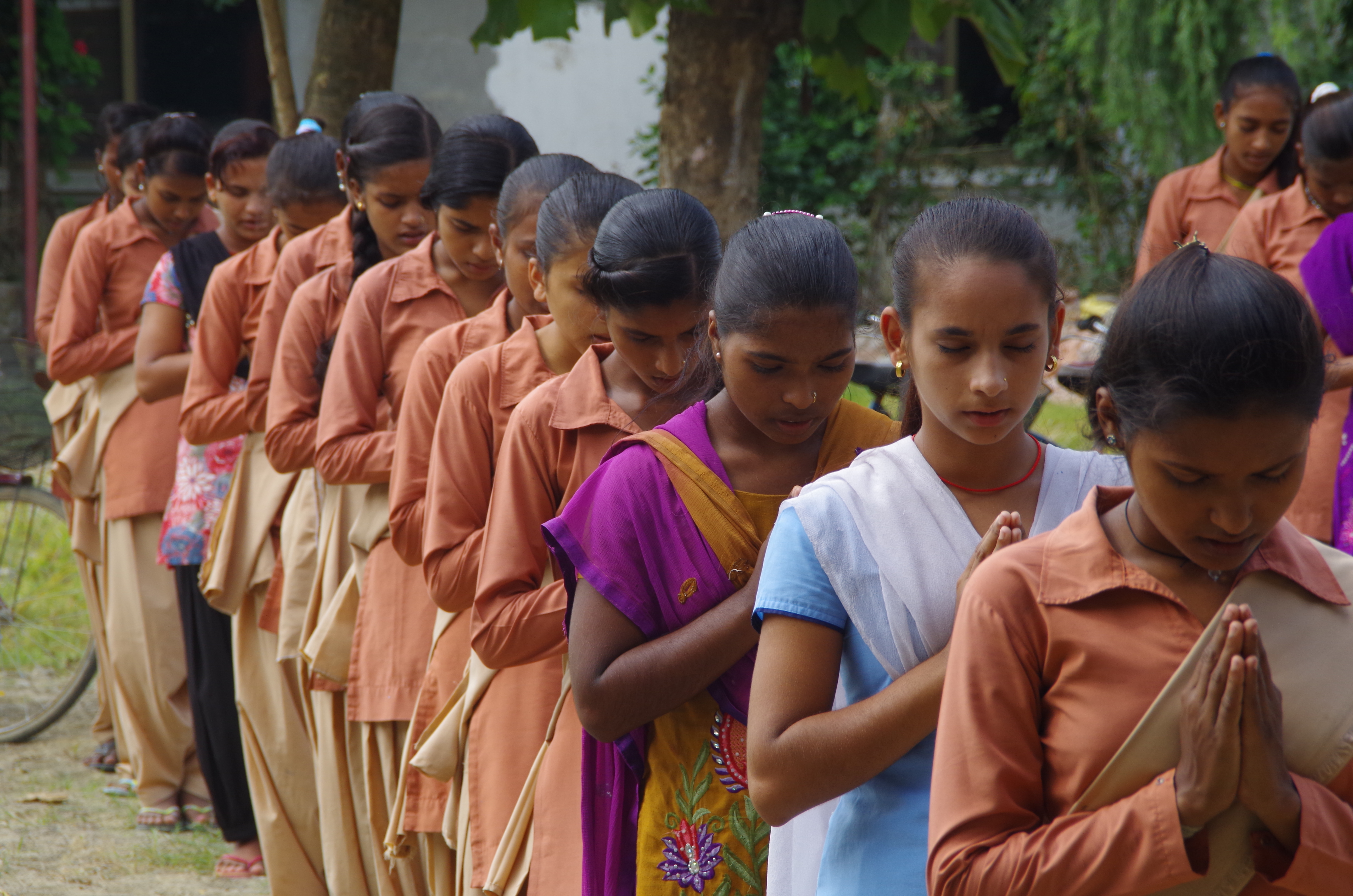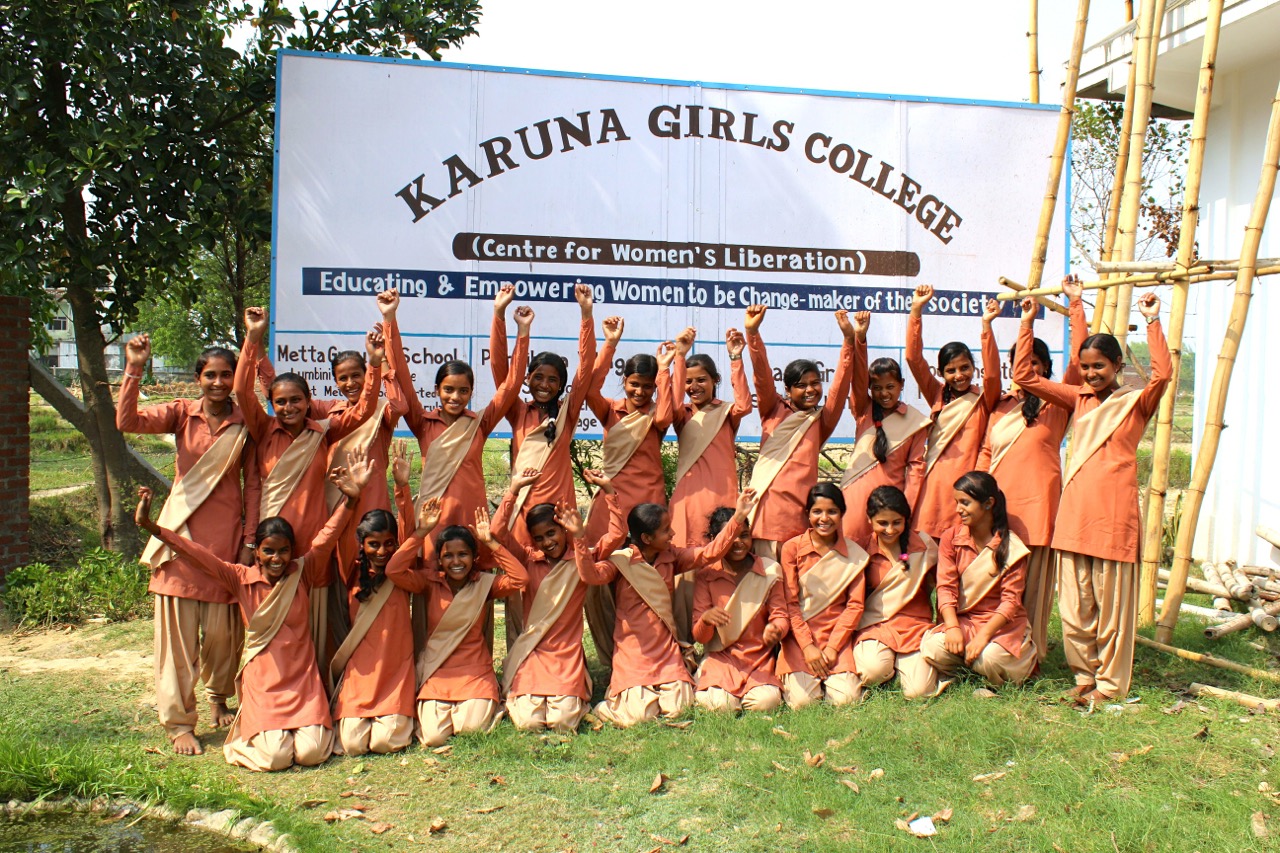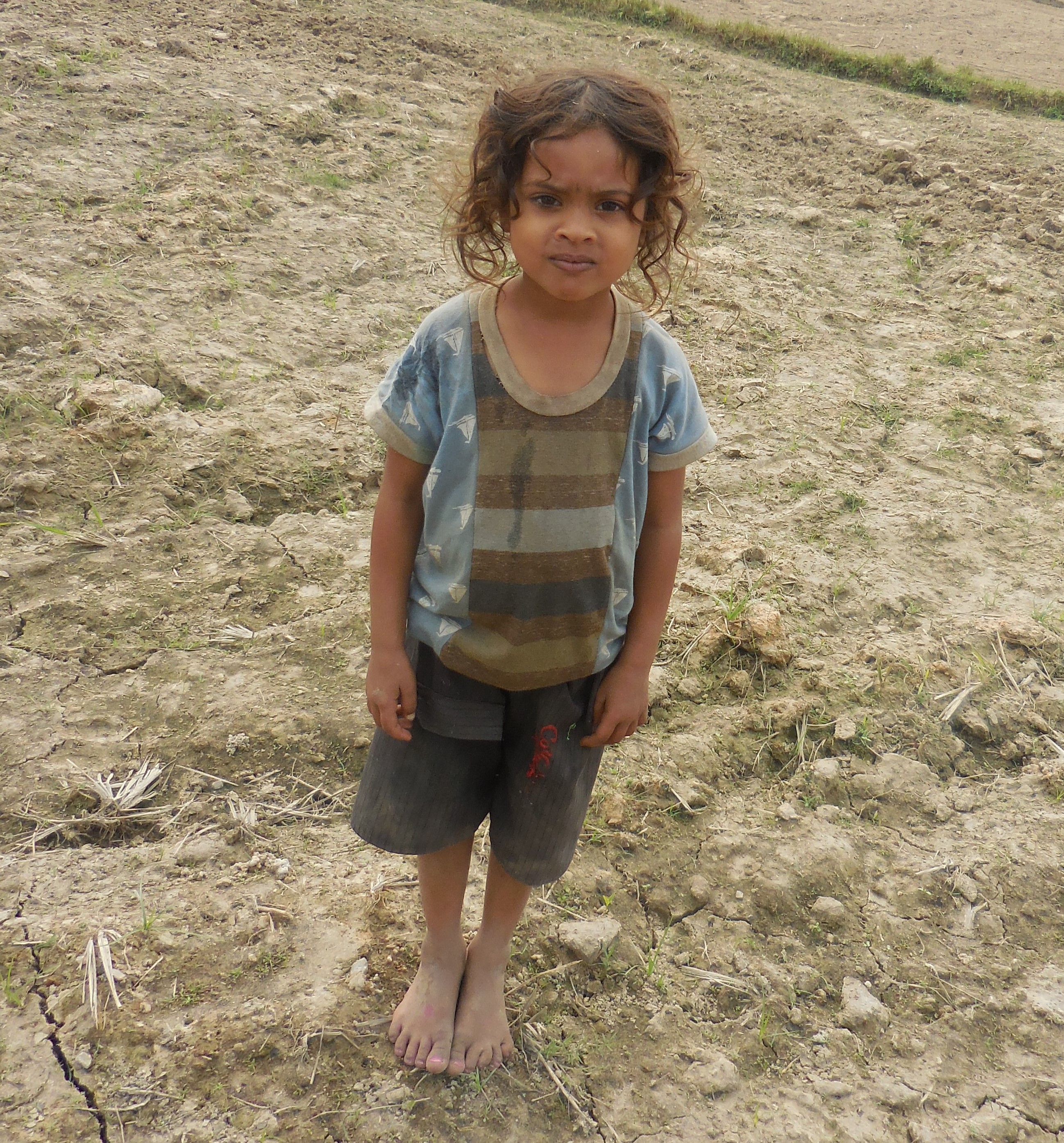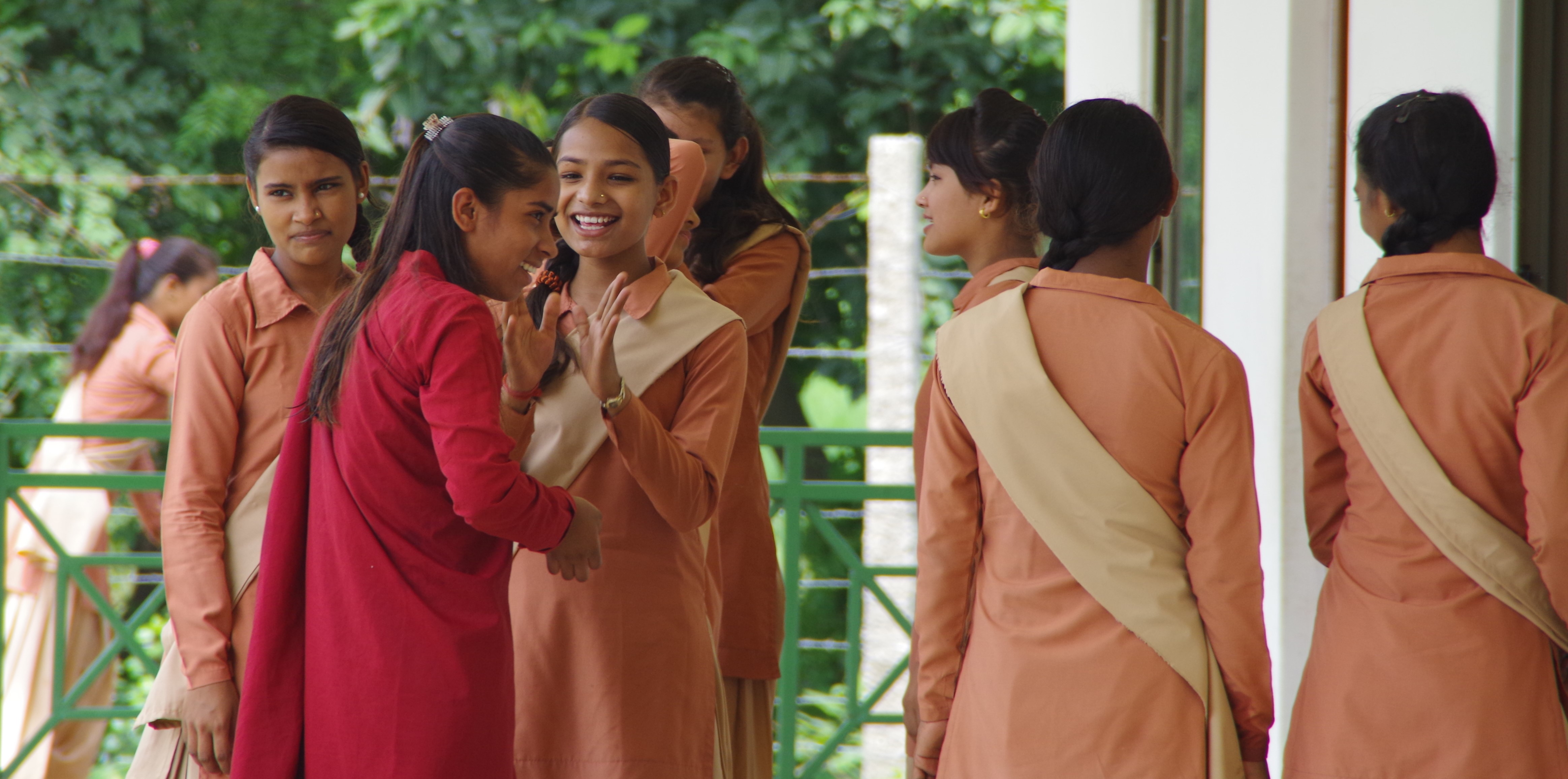[rev_slider_vc alias=”kgs”]
KARUNA GIRLS COLLEGE
Karuna Girls College provides an alternative and inclusive all-girl environment where young women of any religion, caste, and social class can meet and learn.

Founded in 2013, the Karuna Girls College (KGC) provides education for grades 6 to 12. Apart from academic subjects, we provide physical and environmental education as well as health and hygiene education. We also offer vocational development training to both students and local women in tailoring, typing, and computer skills. Participation in these programs will help local women to find jobs, become financially independent, and allow them to contribute economically to their families in the future.
We believe that educated and empowered girls can help change the future of their society.

HISTORY
Situated in the plains of the beautiful Himalayan kingdom of Nepal, Lumbini is the sacred birthplace of the Buddha. Despite a history which brought teachings of compassion and inclusion to the world, in modern times, UNICEF has identified the Lumbini area in Nepal as one of the most critical zones for girls’ discrimination and child marriage.
In the Lumbini area, girls are considered a liability from the time they are born. Sons continue the blood lineage; daughters do not. Sons look after their parents in their old age and perform religious rituals; daughters are lost to another family through marriage. Thus people consider daughters to be someone else's property; to be reared and given in matrimony as soon as possible. Parents have to pay dowries so high, that families can be indebted for decades. The younger the girl is, the lower the dowry, and the shorter the amount of time required to provide care for the child. As a result, especially in poor families, education is seen as a wasted investment and girls usually receive less nutrition and medical care than their brothers. It is no surprise then that more girls than boys die before they are 5 years old. In Nepal, where one child in every 15 is malnourished, the figure is two times higher for girls.
National education statistics report that only 33% of students in Nepal are girls, but this figure is even lower in Lumbini, where the average female literacy rate is one of the lowest in the world -only 18%. Lack of girls’ education contributes to many other problems such as lack of basic health and hygiene in families, which in turn, results in high infant and mother mortality rates and severe malnutrition.

In addition to standard curriculum, Karuna Girls College addresses and calls attention to common health problems like diarrhea and malnourishment, as well as pregnancy, family planning and other basic skills that will help young girls with their future responsibilities. Several other vocational programs including basic health and nutrition are in the planning stages.

LSSF believes that children are the most precious legacy of any community. They deserve care, understanding, and the best that humanity has to offer. They have the right to justice, freedom and ample opportunity for the development of their full potential. This is every child's inborn right, irrespective of nationality, caste, creed, or sex.
Karuna Girls College
Is the only girls school in the region
Pioneers the education and empowerment of women from Lumbini and Kapilavastu
Offers a safe and culturally acceptable environment where girls can meet and learn to improve their future
Implements an integrated curriculum with emphasis on healthy & hygiene, family planning and nutrition
Provides free education to over 155 girls from rural communities
Develops women’s empowerment programs
Provides vocational training programs for village women
Provides computer training
Plans to develop a nursing and midwifery training school
Provides higher education up to the 12th grade and creates awareness in the girls about significant roles that they can play in the development of their society
